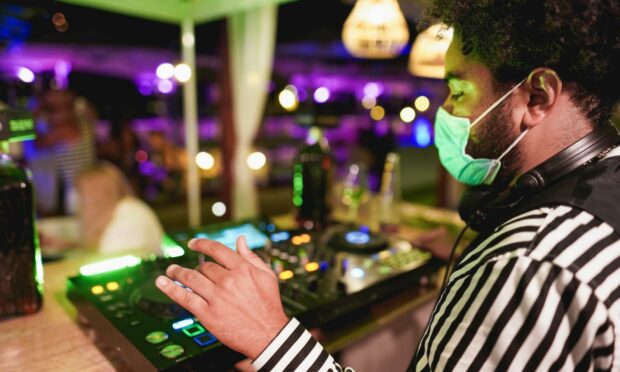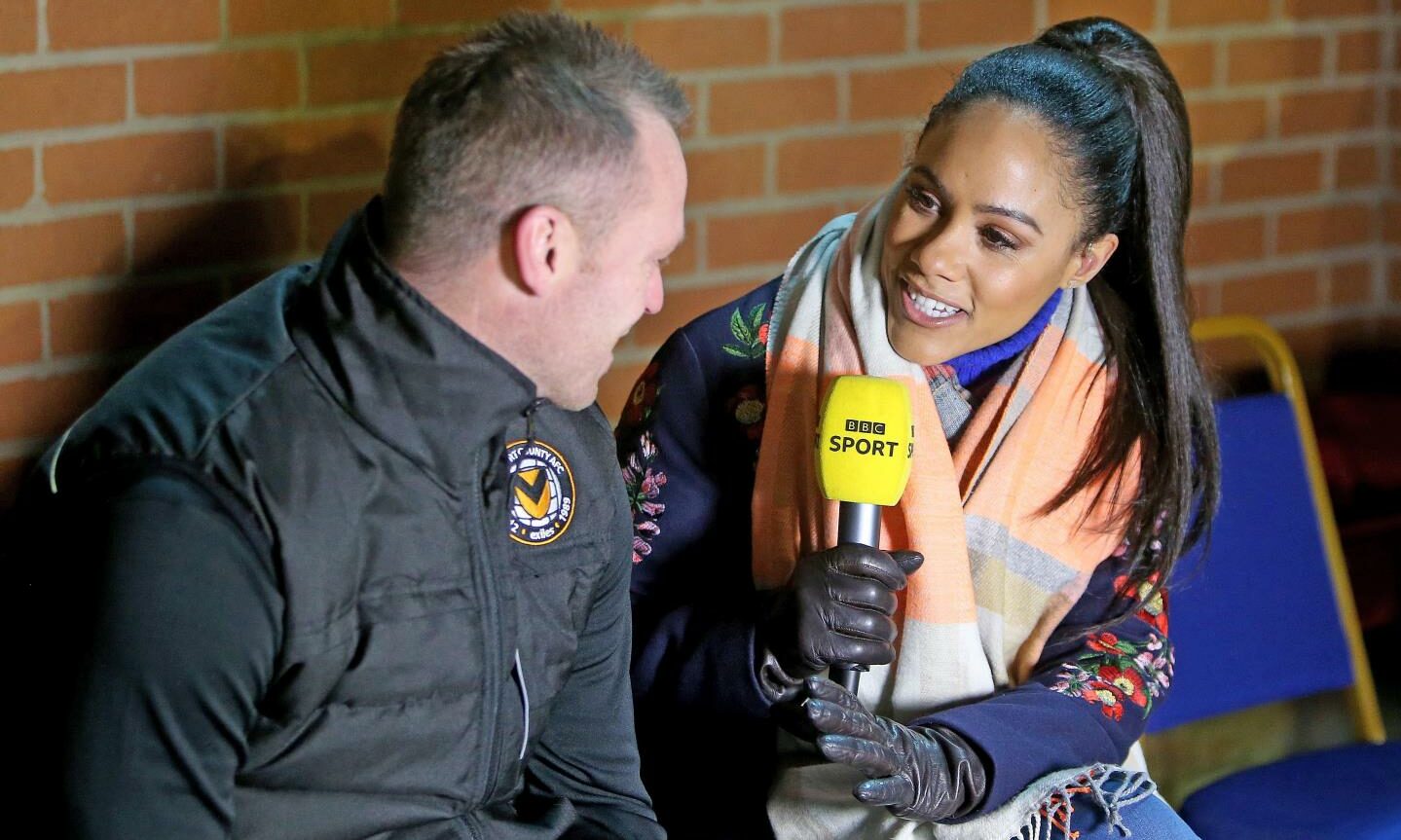This week the Scottish Government floated the idea that nightclubs could reopen if punters wore masks in the dancefloor.
It was greeted with scorn by all the usual chuntering opinionites, sneered at on Twitter and U-turned in an announcement from Jason Leitch on the same day, meaning that dancefloors will be the one indoor public space where you don’t have to wear a mask when moving around.
I didn’t see the problem myself. There’s a legion of 18 and 19-year-olds coming up who may have never legally been to a night club, and won’t be double-vaccinated by August 9 (I’m 40, and I’ve just had my second jag this week). The world of clubbing is theirs to reclaim and recreate as they see fit.
Why on earth wasn’t this heralded as a rejuvenating, late-capitalism opportunity for the fashion industry? Pivot, folks.
You could make a statement with your night club mask
The possibilities to make a statement with your mask have never been so exciting. Masks that glow under UV lights. Sequinned masks. Rhinestoned masks. Masks that match your top. Masks with built-in flashing lights. Slogan masks - “Ye dancin?” “Ye maskin’?” maybe, or a simple: “Sorry, I’ve Got A Boyfriend”, which could save loads of hassle. The advantage of the slogan mask over slogan T-shirt is that people don’t need to stare at your chest to get your message.
With freshers’ weeks roughly a month away, small businesses could really clean up with a line of red, amber and green masks at a traffic light disco (do they still do those things?).
It might also have made the experience of clubbing overall better, as seated-only drinking would lead to a reduction in alcohol consumption, an end to frustrating scrums at the bar and the very necessary introduction of more seating areas in clubs. What? I’m old.
You would also be a lot less likely to end up covered in somebody else’s spilled pint on the dancefloor.
We need creative thinking
Basically, what I’m saying is that getting back to a semblance of what we used to call normality is going to require a bit of creative thinking. The virus is very much still here and definitely does not care if Bob246752 on Twitter thinks wearing masks in clubs is a stupid idea.
Why on earth wasn’t this heralded as a rejuvenating, late-capitalism opportunity for the fashion industry? Pivot, folks
It’s disappointing to see government health advisors doing such a sharp about-face because of a few spiteful comments; not least because being mask-free on a sweaty heaving dancefloor is probably a lot riskier than in the wide aisles of a supermarket.
As soon as someone points out the emperor has no mask, people could abandon them altogether, which puts unvaccinated teenagers and kids at even more risk.
We’re conditioned to laugh at regional accents – to laugh at ourselves
Last week, a gentleman who has variously rejoiced in the names Digby, Lord Jones; Sir Digby Jones and is currently Digby, Baron Jones of Birmingham, took public issue with the television presenter Alex Scott’s pronunciation. Alex Scott is a professional sportswoman and former England football captain who grew up in a working class area of London.
Baron Jones pulled her up on “her very noticeable inability to pronounce her ‘g’s at the end of a word. Competitors are NOT taking part, Alex,” he fulminated, “in the fencin, rowin, boxin, kayakin, weightliftin & swimmin.”
The UK understands that we laugh at regional accents, regardless of content. It’s the same attitude that frequently surfaces in mockery of Doric, Scots and Gaelic
The idea that Received Pronunciation, as spoken by those we were until very recently expected to call “the great and the good”, is in some way the only correct way to speak the English language still has a strange stranglehold on us today. Working class kids going to university often learn to blur or drop their accents to assimilate, to avoid mockery and misplaced assumptions about their intelligence.
Received Pronunciation (RP) is differentiated from other accents, which are called “regional”, where RP is presumably “universal” or “national”, even though it is very rarely heard in Stonehaven, Liverpool, Belfast or Aberystwyth.
‘All livin language is sacred’
When I was growing up, The Fast Show and Harry Enfield beamed into every house in the country, sketch comedy made up of little more than a collection of “wacky” characters who spoke in these regional accents and were usually coded as being a lower social class than the actors playing them (Saint Katherine of Burke and Paul Whitehouse’s “vary, vary drunk” Rowley Birkin QC aside).
The UK understands that we laugh at regional accents, regardless of content. It’s the same attitude that frequently surfaces in mockery of Doric, Scots and Gaelic when written or spoken on social media, and what’s more, it’s been internalised by non-RP speakers. We have been taught to find the sound and appearance of working class language “cringey” and un-aspirational, which functions to preserve the class structure necessary to maintain the massive wealth inequality we’re currently burdened with.
As the late and genuinely great Glasgow poet Tom Leonard once wrote, “all livin language is sacred”; please let’s learn to respect and celebrate the rich polyphonic diversity we have here, and all the people who speak it.
As part of my in-depth research for this column, I have listened to Baron Jones talk (you are welcome, gentle reader). He pronounces the word “year” as “yaaaaaaah”, no trace of the E or R audible.
It took me a split second to adjust my ears to it, but having grown up with RP accents on television, and experiencing them in various workplaces throughout my life, I understood exactly what he meant.
Kirstin Innes is the author of the novels Scabby Queen and Fishnet, and co-author of the forthcoming non-fiction book Brickwork: A Biography of the Arches



